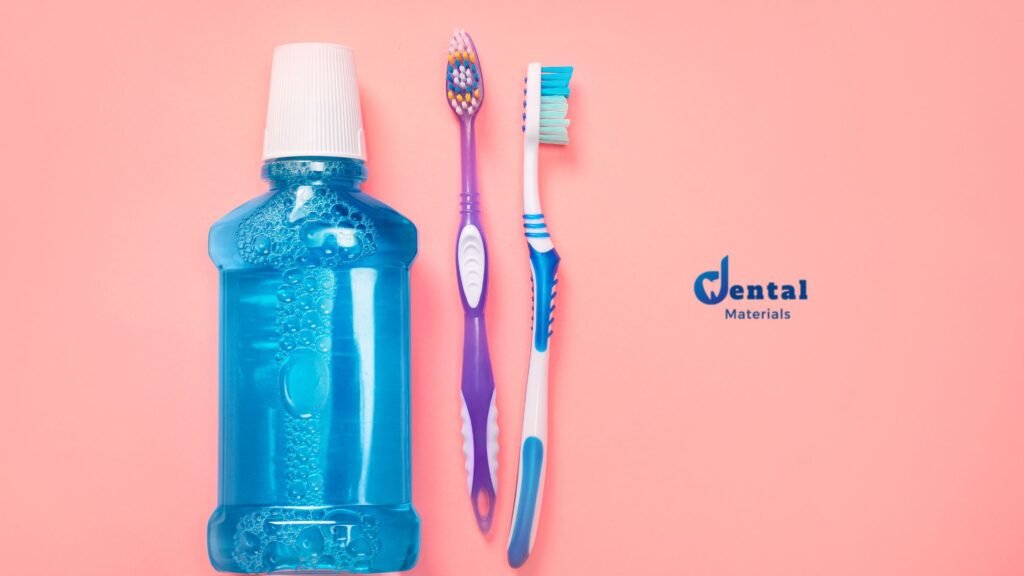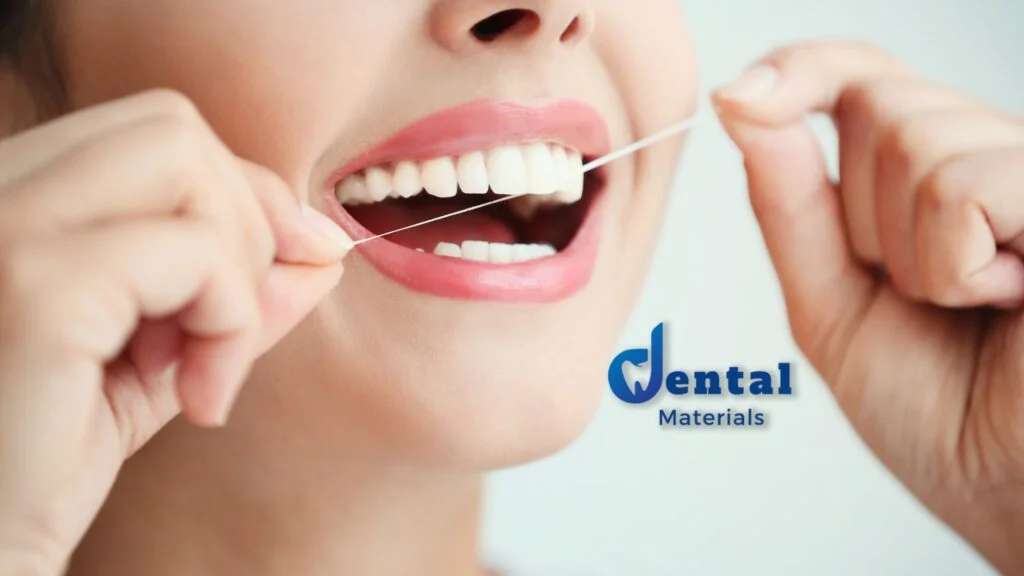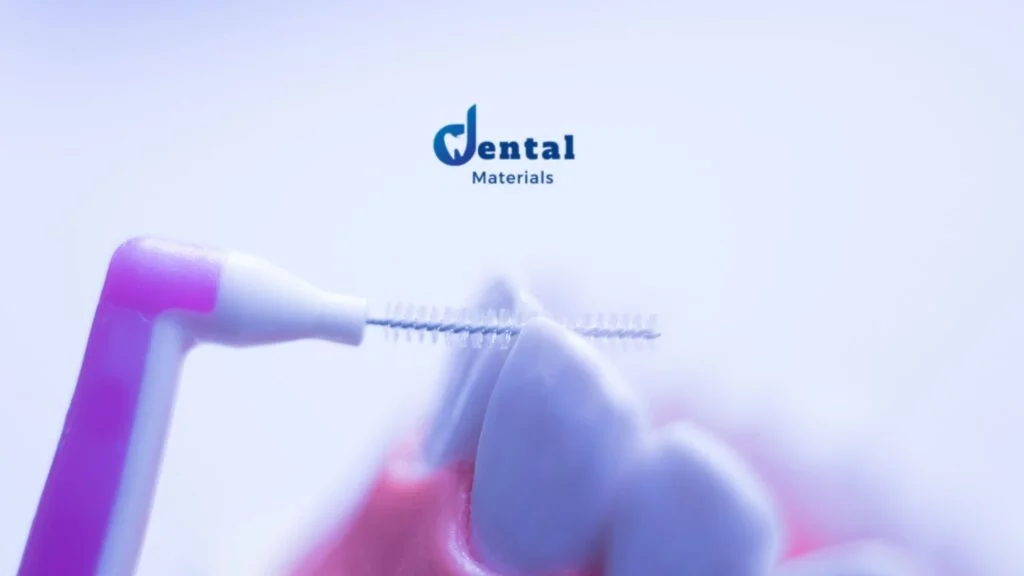Most people are familiar with the idea of using mouthwash to keep their mouth clean and free of bacteria, but many are unsure about when they can start using it again after a tooth extraction. While you may be tempted to start using mouthwash right away, it’s important to wait until the extraction site has healed to avoid irritating it. Here is a guide to help you know when you can start using mouthwash again after a tooth extraction.
It’s important to wait at least 24 hours after your tooth extraction before using mouthwash. This will give your extraction site time to begin healing and will help reduce the risk of irritating it. After 24 hours, you can start using mouthwash again, but be sure to follow the directions on the package.
Some mouthwashes contain alcohol, which can irritate the extraction site and delay healing. If your mouthwash contains alcohol, it’s best to avoid using it until the extraction site is completely healed.
If you have any questions or concerns about using mouthwash after a tooth extraction, be sure to talk to your dentist. They can help you choose a mouthwash that is right for you and give you more information about how to care for your extraction site.
What is Mouthwash?
Mouthwash is a product used to clean the mouth and freshen the breath. It is typically made of water, alcohol, and essential oils. The oils in mouthwash help to break down plaque and bacteria in the mouth, while the alcohol helps to kill germs. Mouthwash can be used daily, or as needed, to help keep the mouth clean and the breath fresh.
Can I Use Mouthwash after My Wisdom Tooth Extraction?
The simple answer is that you can use mouthwash after your wisdom tooth extraction, but you have to keep in mind the same things mentioned above.
When Can I Brush My Teeth?
It’s one of those questions that might seem silly at first, but when you think about it, it’s actually pretty important. When can you brush your teeth?
Well, the answer is: it depends.
If you’re just talking about when you should brush your teeth in general, the answer is at least twice a day. But of course, it’s best to brush after every meal if you can. And if you’re wondering when you should brush your teeth during the day, the answer is: any time is a good time to brush your teeth!
But what if you’re asking about a specific situation? For example, what if you just ate something and you’re wondering if you can brush your teeth right away?
The answer to that question is a little bit more complicated. It depends on what you ate. If you ate something acidic, like citrus fruits or tomatoes, you should wait at least 30 minutes before brushing your teeth. This is because the acid can soften your tooth enamel and make it more susceptible to damage from brushing.
On the other hand, if you ate something sugary, like candy or cake, you should brush your teeth as soon as possible. The sugar will combine with the bacteria in your mouth to form plaque, which can damage your teeth. So it’s best to get rid of the sugar as soon as possible by brushing your teeth.
Are you following the right oral hygiene habits? I doubt !
Take the quiz and test whether you're following the recommended oral hygiene practices.
What’s The Healing Time After A Tooth Extraction?
If you’re reading this, you may be wondering how long the healing process takes after a tooth extraction. The short answer is that it depends on the individual. Some people may heal within a week while others may take longer. There are a number of factors that can affect how quickly you heal, including the type of extraction (simple or surgical), your age, overall health, and whether or not you follow post-operative instructions.
Here’s a more detailed look at what you can expect during the healing process after a tooth extraction:
Days 1-3:
After your tooth has been extracted, you’ll likely experience some bleeding. This is normal and will help cleanse the wound. To help control the bleeding, bite down on a gauze pad for 30-45 minutes. You may also experience some swelling during this time. To help reduce swelling, apply a cold compress to the outside of your cheek for 10-15 minutes at a time.
Days 4-7:
The bleeding should start to decrease and the swelling should start to go down. You may also notice that your gums are starting to form a scab. It’s important not to pick at the scab as it can cause the wound to reopen and delay healing. You should also avoid smoking and using straws during this time as they can also cause the wound to reopen.
Days 8-14:
By this time, the wound should be almost completely healed. The scab will have fallen off and you should no longer have any pain or discomfort. You may still have some minor swelling, but it should be barely noticeable. If you experience any significant pain, swelling, or bleeding, contact your dentist right away as this could be a sign of an infection.
Congratulations! You’ve made it through the worst of it and can now enjoy your new smile.
Staying Minty Fresh After Oral Surgery
It’s no secret that oral surgery can be a daunting experience. After all, who wants to undergo surgery on their teeth, gums, or mouth? But if you’re in need of oral surgery, it’s important to do everything you can to ensure a successful and healthy recovery. That includes taking care of your mouth and keeping it clean and minty fresh. Here are a few tips to help you stay minty fresh after oral surgery:
1. Rinse your mouth with a salt water solution. This will help to kill bacteria and keep your mouth clean.
2. Brush your teeth twice a day with a soft-bristled toothbrush. Be sure to brush gently, as your gums may be sensitive after surgery.
3. Floss your teeth daily. This will help remove food debris and plaque from your teeth and gums.
4. Use a mouthwash that contains fluoride. This will help to prevent cavities and keep your mouth healthy.
5. Suck on sugar-free hard candy or mints. This will help to keep your mouth moist and will also freshen your breath.
6. Drink plenty of fluids. This will help to prevent dehydration and will also keep your mouth from getting too dry.
7. Avoid alcoholic beverages. Alcohol can irritate your mouth and delay healing.
8. Eat soft, easy-to-chew foods. This will help to prevent irritation of your gums and will also help you get the nutrition you need during recovery.
9. Avoid hot foods and drinks. This can irritate your mouth and delay healing.
10. Follow your doctor’s instructions. This is the most important tip of all! Be sure to follow your doctor’s instructions for care after oral surgery. This will help ensure a successful and healthy recovery.
Why Are Teeth Removed?
There are many reasons why teeth may need to be removed. The most common reason is due to decay or infection. Decay can occur when food and bacteria get trapped in the tiny crevices of your teeth.
This can cause the enamel to break down, which can lead to pain, sensitivity, and eventually, tooth loss. Infection occurs when decay is left untreated and the bacteria spread to the inner layers of the tooth. This can cause serious pain, abscesses, and even death if left untreated.
Other reasons for tooth removal include crowding, impacted teeth, orthodontic treatment, and injury. Crowding occurs when there is not enough space in the mouth for all of the teeth. This can cause the teeth to become crooked or overlap. Impacted teeth are usually wisdom teeth that become stuck under the gum line and do not erupt through the surface.
They can cause pain, infection, and damage to adjacent teeth. Orthodontic treatment may require the removal of some teeth in order to create more space in the mouth. Injury can occur due to trauma to the mouth, which may result in a broken or chipped tooth.
Tooth removal is usually a last resort after all other options have been exhausted. It is a major surgery that should not be taken lightly. The risks associated with tooth removal include pain, bleeding, infection, and damage to adjacent teeth.
If you are considering having a tooth removed, be sure to discuss all of your options with your dentist or oral surgeon.
How Can Mouthwash Help?
Assuming you would like a blog discussing the benefits of mouthwash:
We all know the drill, brushing twice a day and flossing once a day – but what about using mouthwash? Is it really necessary or effective? The answer is yes, mouthwash can be a powerful ally in the fight against gum disease and tooth decay. Here’s how:
Mouthwash can reach places your toothbrush can’t. No matter how well you brush your teeth, there are always going to be areas that are difficult to reach. This is where mouthwash comes in – it can help to remove plaque and bacteria from these hard-to-reach areas.
Mouthwash can help to prevent gum disease. Gum disease is caused by a build-up of plaque and bacteria around the gum line. If this plaque is not removed, it can cause the gums to become inflamed and eventually lead to gum disease. Regular use of mouthwash can help to remove plaque and bacteria, and thus help to prevent gum disease.
Mouthwash can help to prevent tooth decay. Tooth decay is caused by a build-up of plaque and bacteria on the teeth. If this plaque is not removed, it can eventually lead to tooth decay. Regular use of mouthwash can help to remove plaque and bacteria, and thus help to prevent tooth decay.
Mouthwash can help to freshen your breath. If you’re suffering from bad breath, mouthwash can help to freshen your breath by killing the bacteria that cause bad breath.
What to Do After a Tooth Extraction
After a tooth extraction, it is important to take care of the wound in order to prevent infection and promote healing. Here are some tips on what to do after a tooth extraction:
1. Take it easy for the rest of the day. Avoid strenuous activity and give your body time to rest.
2. Apply pressure to the wound with a clean gauze pad. Apply pressure for 20-30 minutes at a time to help stop the bleeding.
3. Keep your head elevated. This will help reduce swelling and bruising.
4. Apply ice to the area. Place a bag of ice or a cold compress on the outside of your cheek for 10-15 minutes at a time.
5. Take pain medication as needed. Over-the-counter pain medication can help relieve pain and inflammation.
6. Rinse your mouth with salt water. Mix 1 teaspoon of salt with 8 ounces of warm water and rinse your mouth several times a day. This will help keep the area clean and reduce swelling.
7. Eat soft foods. Avoid hard or crunchy foods that can irritate the area. Stick to soft foods like soup, pudding, or mashed potatoes.
8. Practice good oral hygiene. Brush your teeth gently and avoid using a straw for the first few days.
If you have any concerns or questions, be sure to contact your dentist or oral surgeon.
What to Avoid After a Tooth Extraction
After a tooth extraction, it is important to avoid certain things in order to ensure proper healing. First, do not smoke as this can delay healing and increase the risk of infection.
Second, avoid using a straw for at least 24 hours as this can also delay healing and cause bleeding.
Third, do not drink alcohol for at least 24 hours as this can thin the blood and cause bleeding.
Fourth, avoid spicy and hot foods for at least 24 hours as this can cause irritation and pain.
Fifth, avoid hard and crunchy foods for at least a week as this can cause the wound to open and bleed.
Lastly, avoid vigorous activity for at least a week as this can cause the wound to open and bleed.
How to Make a Saltwater Rinse
A saltwater rinse is a simple and effective way to cleanse your nose and sinuses. It can be used to relieve congestion and remove irritants from the nasal passages.
Here’s how to make a saltwater rinse:
1. Dissolve 1/4 teaspoon of salt in 8 ounces of warm water.
2. Lean over a sink and tilt your head to one side.
3. Place the spout of the rinse bottle just inside your upper nostril.
4. Gently squeeze the bottle to release the solution into your nostril.
5. Breathe normally through your mouth as the solution drains through your nose and into the sink.
6. Repeat the process on the other side.
7. Spit out any remaining solution.
8. Rinse the bottle and spout with warm water and air-dry.
A saltwater rinse is a safe and effective way to cleanse your nose and sinuses. It can be used to relieve congestion and remove irritants from the nasal passages. Be sure to follow the instructions carefully and rinse the bottle and spout after each use.
Ask Your Dentist for More Tips
Your dentist is a great resource for you when it comes to your oral health. They can provide you with tips and advice on how to keep your teeth and gums healthy, and they can also help you troubleshoot any problems you may be having. Here are a few things you can ask your dentist for more tips on:
1. How to brush and floss your teeth properly. Many people do not know the proper way to brush and floss their teeth, and as a result, their oral health suffers. Your dentist can show you the proper techniques and help you find the products that will work best for you.
2. How to choose the right toothbrush and toothpaste. There are so many products on the market these days, and it can be hard to know which ones are the best for your needs. Your dentist can help you narrow down your choices and find the products that will work best for you.
3. How to avoid cavities. Cavities are one of the most common dental problems, but they are also one of the easiest to avoid. Your dentist can teach you about the foods and drinks that cause cavities and how to avoid them.
4. How to deal with gum disease. Gum disease is a serious problem that can lead to tooth loss, but it is also something that can be easily avoided. Your dentist can show you how to keep your gums healthy and how to spot the early signs of gum disease.
5. How to whiten your teeth. Many people are interested in whitening their teeth, but they are not sure how to go about it. Your dentist can help you find the right products and give you tips on how to achieve the best results.
6. How to prevent jaw pain. Jaw pain is a common problem, but it is often preventable. Your dentist can give you tips on how to avoid jaw pain, such as by avoiding hard foods and by using proper posture.
Your dentist is a wealth of knowledge when it comes to your oral health. So next time you have a question about your teeth or gums, be sure to ask your dentist for more tips!




